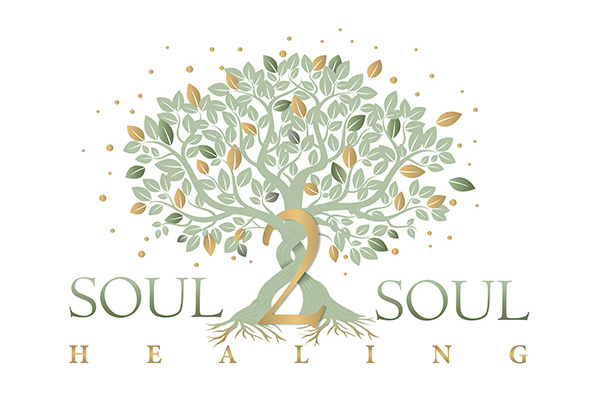Self-destructive behavior is a cycle that can be difficult to escape from. It often starts as self-doubt and feelings of inadequacy, creating a loop where it becomes increasingly easy to indulge in self-destructive behavior as a way to cope with negative emotions. In the short term, self-destructive behaviors can help you momentarily ease emotional pain or numb yourself from reality but in the long run, they actually make it harder for you to feel better emotionally and physically.
Breaking out of this self-destructive cycle requires altering thought patterns and changing self-defeating beliefs into positive self-talk are strategies that have been shown helpful in improving self-esteem and breaking out of self-destructive cycles.
Different Types of Self-destructive Behaviors
Self-destructive behaviors come in many forms and can include anything from drinking/using substances, overeating/under-eating, self-harm, sex, shopping, gambling, or even emotionally shutting down/withdrawing from others. Self-destructive behavior can have serious long-term consequences on both physical and mental health.
Here Are 7 Tips That Can Help You Break the Self-destructive Cycle
1. Acknowledge That You Want to Break the Cycle and Identify the Reasons Why
It’s important to acknowledge that self-destructive behaviors are self-defeating and not conducive to leading a healthy, happy life. Identifying the reasons why you want/need to break out of self-destructive cycles can be a key part of motivating yourself in achieving this goal.
Are you looking for improved relationships? Better self-esteem? A healthier lifestyle? Whatever your reasons may be, it is important to identify them and keep them in mind as you work towards breaking the cycle. Knowing what outcome or reward these changes will bring can help give you the necessary motivation needed to stay committed and focused on making positive changes in your life.
By acknowledging our goals and motivations, we gain clarity on why we are taking these steps to break self-destructive cycles and find new ways of coping with life’s ups and downs. Taking the time to self-reflect on why you want to make changes can help ensure that your journey toward self-improvement is successful!
2. Identify Your Personal Triggers for Self-destructive Behaviors
Learning to identify our personal self-destructive behaviors can help us understand and resolve issues more deeply. Everyone has triggers that set off a self-destructive cycle and can range from something as minor as feeling left out in a room of friends to something as major as being made to feel worthless from another person’s words. These triggers fuel self-destructive behavior, and understanding what they are can allow us to be better equipped when faced with them.
Doing this involves self-examination and deep reflection on the choices we make that ultimately lead us down self-destructive paths. It is not easy and requires commitment, but staying self-aware and recognizing our limits helps us keep an objective look at ourselves, so we can take steps forward toward a healthier existence.
3. Identify Healthy Coping Mechanisms to Replace Your Old, Destructive Ones
Making a list of healthy coping mechanisms to replace self-destructive behaviors is an important step in breaking out of a self-destructive cycle. When faced with the urge to engage in self-destructive behavior, it’s helpful to have a list of activities that you can do instead. Examples of possible positive coping skills include:
- Exercise – Going for a run or doing yoga are great ways to work off negative energy in a productive way.
- Read/Listen to Music – Focusing your attention on something else like reading or listening to music can help distract from self-defeating thoughts and emotions and provide comfort and stability.
- Connect to Someone – Talking through issues with friends, mentors, or family can help you gain perspective and clarity on issues.
- Practice self-care – Taking time to do something that makes you feel good can help shift your focus away from self-destructive behavior.
It’s important to remember that breaking out of self-destructive habits is not easy, but it is possible. With self-reflection, self-awareness, and commitment to making positive changes in your life, breaking out of a self-destructive cycle becomes more achievable.
4. Before Acting on an Impulse, Follow the 30-minute Rule
It is important to recognize self-destructive impulses and work on self-control. One way to do this is by following the 30-minute rule: before engaging in self-destructive behavior, take a few moments to pause and take a deep breath. This gives us time to think things through and assess what course of action would be the best. It can also give us an opportunity to practice self-awareness and self-regulation, allowing us to make conscious decisions that help steer away from self-defeating behaviors.
Following the 30-minute rule helps build self-control, helping you stay strong against impulses that may lead you down a self-destructive path. With practice, it can become easier for you to recognize self-destructive impulses and take a step back before acting on them, helping you break free from self-defeating cycles. So when you are feeling overwhelmed or tempted to engage in self-sabotaging behavior, remember to take a few moments and practice self-care: follow the 30-minute rule! It can help give you the self-control needed to kick those self-destructive habits for good.
5. Practice Self-compassion and Be Patient with Yourself as You Work Through This Process
Changing self-destructive behavior takes time and it is ok to not reach your goals immediately. Be kind to yourself, recognize that mistakes happen, and continue striving towards healthy habits. If you find yourself slipping back into self-destructive behavior, don’t beat yourself up about it.
Instead, focus on self-forgiveness and take steps to turn the situation around. Working through self-destructive cycles is not easy but with self-compassion, self-awareness and dedication you can break free from self-destructive behavior and work towards a healthier you.
6. Celebrate Every Victory, No Matter How Small It May Seem
Recognizing and celebrating even the smallest of victories is important when working through self-destructive cycles. Every time you make it through a situation without reverting to self-destructive behavior, or successfully practicing self-care, be sure to take the time to acknowledge your accomplishment and reward yourself for a job well done. This can help motivate you to keep up with your progress and stick with positive coping strategies.
Even if something as simple as being able to express your feelings appropriately is an achievement for you, you must celebrate it! Celebrating small successes helps us stay motivated on our journey toward self-improvement. So remember: always take the time to appreciate what you have accomplished, no matter how small. It will go a long way in helping you break self-destructive cycles!
7. Seek Professional Help to Address the Underlying Issues Fueling Your Self-destructive Behaviors
If self-destructive behavior is something you struggle with and find it hard to break away from, don’t be afraid to seek professional help. At Soul 2 Soul Healing, we understand that self-destructive behaviors are often symptoms of deeper issues. That is why our sessions provide a safe space for clients to get in touch with the underlying feelings and thoughts that may be fueling self-defeating habits.
Through talk therapy (including traditional Psychodynamic, Cognitive Behavioral Therapy, and Solutions-Focused techniques), mindfulness-based practices, and family work, we strive to provide individuals suffering from self-destructive cycles with the tools needed to move forward on their journey toward self-improvement.
No matter where you are in your self-improvement journey, don’t hesitate to seek help. Soul 2 Soul Healing is here to provide you with the tools and support necessary for you to grow and heal from self-destructive behavior. So don’t wait – take control of your self-defeating cycles today!
Contact Soul 2 Soul Healing Today to Schedule Your Free Consultation!




